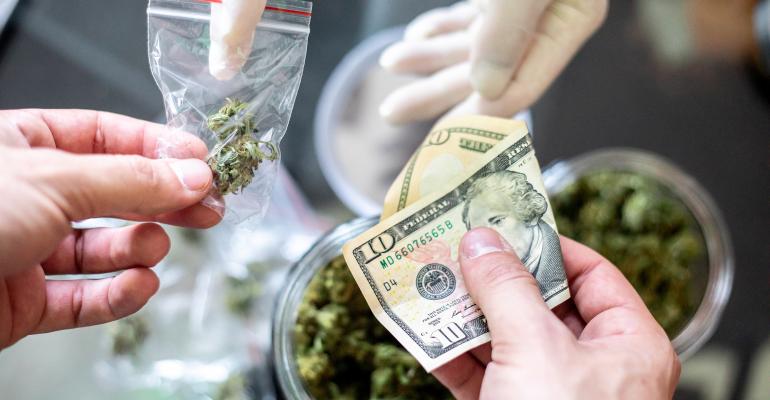(Bloomberg)—New York state is looking to help marijuana businesses secure leases for stores, part of its push to bring diversity to the legal cannabis market.
The Dormitory Authority of the State of New York, an agency that handles public finance and construction, is working with the real estate brokerage CBRE Group Inc. to identify as many as 150 sites for marijuana stores, including dozens in New York City, according to people familiar with the matter.
It’s part of a proposal to ensure that diverse business owners can get into the nascent marijuana business. Lawmakers in Albany are considering a budget that includes $200 million to fund social equity in the cannabis industry. If that money is approved, the state may use some of it to help open marijuana businesses, including by securing retail leases and furnishing stores.
Representatives for CBRE and the state’s Office of Cannabis Management declined to comment.
The state’s help with real estate could boost applicants trying to overcome the notoriously difficult challenge of setting up a marijuana dispensary -- where it’s hard to get a license without real estate, and hard to get real estate for a small business that sells something that’s still federally illegal.
The law that made weed legal in New York includes provisions aimed at helping communities of color, which for decades were disproportionately targeted by law enforcement.
The Office of Cannabis Management recently said it would award the first licenses for retail marijuana stores to applicants who have been convicted of a marijuana-related offense or whose relatives have been found guilty of a crime connected to pot.
With recreational marijuana sales potentially debuting later this year, there is expected to be stiff competition for retail space where stores can be established. That’s particularly true in Manhattan and Brooklyn, with the industry bracing for limits on how close dispensaries can be to schools and churches.
New York is joining more than a dozen other states in allowing adults to buy pot. Critics of the rollout in some of those states have argued that communities hardest hit by drug laws have been denied opportunities to profit from legalization.
--With assistance from Natalie Wong, Jo Constantz and Tiffany Kary.
© 2022 Bloomberg L.P.




